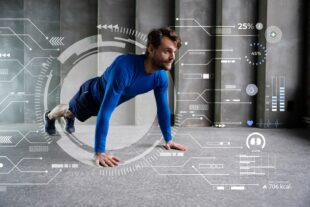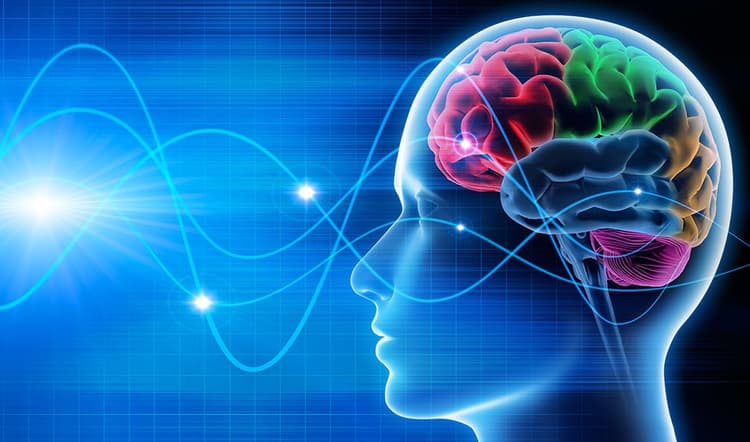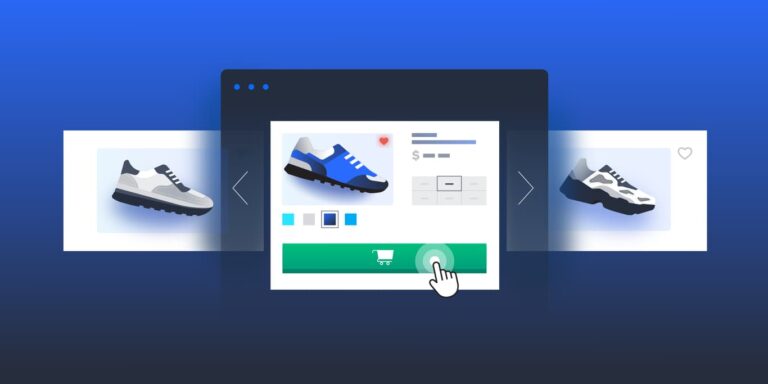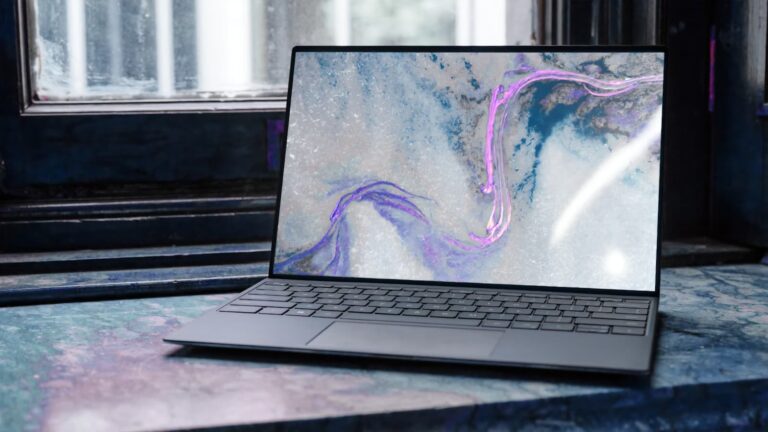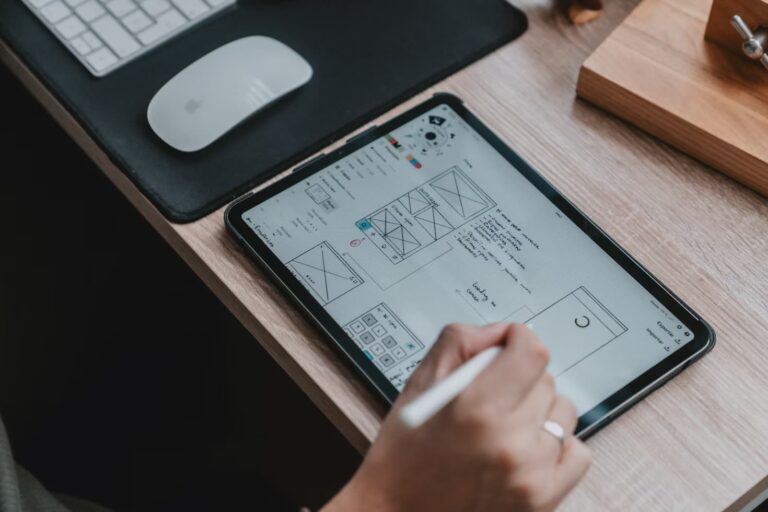The digital landscape is continually evolving, and nowhere is this more evident than in the realm of web graphics. In this era of rapid technological advancement, artificial intelligence (AI) is at the forefront of transforming the way we create, optimize, and interact with graphics on the web. Imagine a future where web graphics are not just eye-catching but also personalized to each user, interactive in ways we’ve never seen before, and seamlessly integrated into our online experiences. Welcome to the exciting world of web graphics in the age of AI.
The Power of AI in Web Graphics
How AI Enhances Graphic Design
Traditionally, web designers and graphic artists have spent hours crafting visually appealing graphics. With AI, this process becomes quicker and more efficient. AI-powered design tools analyze user preferences, trends, and branding guidelines to create stunning visuals in a fraction of the time.
Examples of AI-Generated Web Graphics
AI algorithms can generate graphics for a wide range of applications, from website banners to social media posts. These graphics can adapt to different screen sizes and resolutions, ensuring a consistent and visually pleasing experience for users.
The Impact on User Engagement
Engaging visuals is crucial for keeping users on your website. AI-generated graphics not only capture attention but also cater to individual user preferences, increasing the chances of longer visit durations and higher conversion rates.
Personalization and User Experience
Tailoring Graphics to Individual Users
Imagine a website that dynamically adjusts its graphics to match each visitor’s interests and preferences. AI can make this a reality by analyzing user data and serving up personalized visuals, creating a unique and immersive experience for each user.
Dynamic Content Generation
AI can generate graphics in real-time based on user interactions. For example, an e-commerce site can show personalized product recommendations using AI-generated visuals, increasing the likelihood of a purchase.
Improved User Retention
Personalized graphics not only enhance the initial user experience but also encourage repeat visits. When users feel that a website understands and caters to their needs, they are more likely to become loyal customers.
SEO and Web Graphics
The Importance of Optimizing Graphics for Search Engines
Search engines don’t just index text; they also analyze images. AI tools can optimize web graphics by adding relevant metadata, improving load times, and ensuring that images are responsive and mobile-friendly.
AI Tools for Image Optimization
AI-driven image optimization tools can compress images without sacrificing quality, leading to faster page loading times. This not only improves user experience but also positively impacts SEO rankings.
Boosting Website Rankings with AI-Generated Visuals
High-quality, relevant images generated by AI can improve on-page SEO. Search engines reward websites with engaging visuals, making AI-generated graphics a valuable asset in your SEO strategy.
Creating Interactive Graphics
AI-Driven Animations and Interactivity
Static graphics are becoming a thing of the past. AI can create interactive elements like animations, hover effects, and dynamic infographics that capture and retain user attention.
Engaging Users with Interactive Content
Interactive graphics allow users to actively engage with your content, increasing their involvement and understanding of the information you’re presenting.
Enhancing User Journeys with Smart Graphics
AI can analyze user behavior and dynamically adjust graphics to guide users through your website, ensuring a smooth and engaging journey.
Web Graphics and E-Commerce
AI-Driven Product Recommendations
E-commerce sites are harnessing AI to provide personalized product recommendations. These recommendations often include AI-generated graphics that showcase products in a way that resonates with each user.
Personalized Shopping Experiences
AI can customize the entire shopping experience, from the homepage to checkout, by adapting graphics, colors, and layouts to match individual user preferences.
Conversion Rate Optimization
AI-optimized web graphics not only enhance the shopping experience but also boost conversion rates, ultimately driving more sales for e-commerce businesses.
Accessibility and Inclusivity
Making Web Graphics More Accessible
AI can assist in making web graphics accessible to users with disabilities. It can generate alt text, captions, and other accessibility features, ensuring that everyone can engage with online content.
AI for Generating Alt Text and Captions
Automated alt text and captions generated by AI can save time for content creators while improving the accessibility of web graphics.
Ensuring a Diverse and Inclusive Online Experience
AI algorithms can help identify and rectify biases in web graphics, ensuring that content is diverse and inclusive, reflecting the values of the digital age.
Challenges and Ethical Considerations
Potential Biases in AI-Generated Graphics
AI algorithms are not immune to biases present in the data they are trained on. It’s essential to monitor AI-generated graphics for any unintended biases and correct them promptly.
Ensuring Ethical AI Use in Web Design
As AI plays a more significant role in web graphics, ethical considerations become paramount. Designers and developers must ensure that AI is used responsibly and transparently.
Striking a Balance Between Automation and Human Creativity
While AI can streamline the graphic design process, human creativity remains irreplaceable. Striking the right balance between automation and human input is essential to creating compelling web graphics.
Tools and Platforms
Popular AI Graphic Design Tools
Numerous AI-powered graphic design tools are available, catering to various needs and skill levels. From simple image generators to advanced design platforms, there’s an AI tool for every designer.
Integrating AI into Existing Design Workflows
Adopting AI in your design process doesn’t require a complete overhaul. Many AI tools seamlessly integrate with existing design software, making the transition smoother.
Cost Considerations and ROI
While AI can improve efficiency, it’s crucial to assess the costs and potential return on investment (ROI) when implementing AI-powered graphic design tools.
Future Trends in AI and Web Graphics
AI-Generated 3D Graphics and Virtual Reality
The future promises AI-generated 3D graphics that can create immersive virtual reality (VR) experiences. From gaming to virtual tours, AI will play a pivotal role in shaping VR content.
The Role of AI in AR and XR
Augmented reality (AR) and extended reality (XR) are becoming more prevalent. AI will drive the creation of AR/VR content that blurs the lines between the digital and physical worlds.
The Evolution of Web Graphics Beyond Screens
AI will continue to push the boundaries of what’s possible in web graphics. From holographic displays to AI-driven art installations, the future is bright and full of creative possibilities.
Conclusion
As we’ve journeyed through the transformative impact of AI on web graphics, one thing is clear: we’re on the brink of a new era in digital design. The fusion of AI’s computational prowess and human creativity promises to deliver web graphics that are not only visually stunning but also deeply personalized, interactive, and inclusive. Embracing these advancements will be essential for businesses and individuals looking to stay at the forefront of the digital landscape. So, let’s embark on this exciting journey, harnessing the power of AI to shape the future of web graphics.
